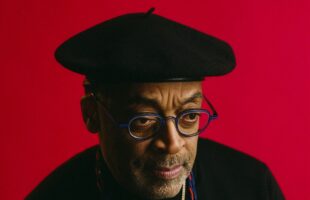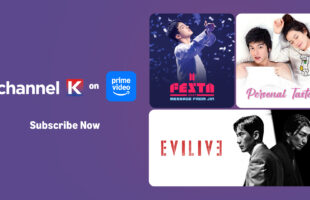June 1, 1992. HBO Asia, backed by Paramount and Warner Bros., set up shop in Singapore and launched an 18-hour-a-day home movie channel. Then, the channel’s tagline was “The World’s Greatest Movie Channel”, promising to deliver quality Hollywood entertainment to homes in Asia, commercial-free.
Humble beginnings
From the onset, HBO Asia intended to launch as a premium movie service. However, in the early days of Pay-TV, few operators in Asia Pacific had the tiering capabilities to offer the channel a-la-carte so subsequently, the broadcaster decided to offer the channel as a basic movie service in an effort to expand distribution across the region.
Jacelyn Kek, Senior Vice President of Sales and Marketing, recounts that the strategy proved to be very successful as HBO soon expanded to key markets like Singapore, Indonesia, the Philippines, Thailand, Taiwan, Malaysia, Hong Kong, Brunei, Papua New Guinea and China – all within three years of launch.
After 20 months on air, the channel became a fully programmed 24-hour service. By its fifth birthday, it had reached 18 Asian territories.
Expanding portfolio
Twenty years, 22 territories, nine channels and many hit programmes later, the broadcaster is confident it is on track in delivering the towering promise of being the “world’s greatest”. While the philosophy of remaining commercial-free has not changed, what has is the evolution to being more than just a movie channel showcasing mainstream American films.
Today, when one mentions HBO, landmark series such as The Sopranos, Sex and the City, Band of Brothers, Six Feet Under and recent hits like Game of Thrones and Boardwalk Empire, come to mind. It is not too far-fetched to say that these HBO-original TV series helped put HBO Asia on the Asian Pay-TV map. Kek agrees.
“Sex and the City was phenomenal. We still have viewers calling us asking why we are not showing it anymore even though the season has ended. It opened up many opportunities for us to do tie-ups with third party companies to promote HBO,” she enthuses. “I remember a deejay saying on a Singapore radio station that nothing will peel him away from Six Feet Under that night. And no, that’s not paid advertising.”
So central to the HBO brand are the originals that two more wouldbe hits are making their way to Asian screens. HBO-original movie Hemingway & Gellhorn, starring Nicole Kidman and Clive Owen, will premiere in June while The Newsroom, created by Oscar and Emmy winner Aaron Sorkin, debuts across Asia Pacific on August 1. The series, which takes a behind-the-scenes look at a prime-time cable-news programme, received tremendous interest from international buyers at the recent L.A. Screenings.
Apart from original productions on its flagship channel, the broadcaster now offers many more channels, including HBO Signature, HBO Hits, HBO Family, HBO On Demand, HBO HD, HBO Hits HD, MAX and RED, unlike the early days when Hollywood films and repeats dominated programming schedules.
The broadcaster was also appointed the exclusive distributing agent for Warner TV and BabyFirst in Asia Pacific in November 2009 because of the strength of HBO Asia’s distribution and close relationships with affiliates.
Bumpy road
However, the journey was not always smooth sailing. Programmes like One Night Stand, a stand-up series, failed to rate.
“We experimented with the content a little bit in the early days,” explains Kek. “These shows are hugely popular in the US but did not gain traction with Asian viewers.”
CINEMAX, launched in 1996 and positioned as a more sophisticated network showcasing criticallyacclaimed films, also did not sit well with audiences.
Kek theorised that CINEMAX’s lack of appeal was due to its position as a high-brow type of movie channel. She believes the channel was “well ahead of its time as viewers were not as appreciative of ‘movie gems’ as they are now.” Eventually, it was rebranded as MAX in 2009, a mass-appeal Hollywood movie channel targeting male viewers.
Censorship laws in Asia also continue to plague the broadcaster. For example, Singapore’s Media Development Authority (MDA) has advised HBO to cut several violent scenes in Season One of Game of Thrones. Back in the early-2000s, an entire episode of Six Feet Under was cancelled by the regulatory board. Sex and the City, which originally aired in the US from 1998 to 2004, was banned entirely from being broadcast in the country due to its risqué themes. It was only when the sixth and final season had aired in the US did MDA finally lift the ban.
Piracy is another area that is increasingly becoming a concern.
“For example, there are several illegal movie channels in Thailand transmitting via satellite or DVD play-outs of the latest Hollywood blockbusters. These channels are then picked up by hundreds of local cable operators and retransmitted to subscribers at a fraction of the cost that a legitimate player like Thailand’s Truevisions charges. With technological advancements and increasing broadband speed, internet piracy is another major concern,” says Kek.
The channel’s presentation and concept were also very different from what it is today. Kek describes the early look as “100 percent American” – everything from voice talents to promotion spots built the HBO brand as an all-around Hollywood movie channel.
“We ran what we call ‘Sub-Ed’ (subscriber education) spots hosted by an American, teaching viewers how to best use the channel, where to look for the latest movies and more,” says Kek.
Moving forward
Today, the channel’s appearance is better aligned to the tastes and preferences of Asians. Its original tagline has been refreshed with “It’s not TV, it’s HBO.”
“What you see on air now is certainly reflective of what we have learnt from our interaction with viewers in the past 20 years. We constantly conduct focus group studies to find out what viewers like or don’t like. Through these feedback sessions, we felt that there is a need to establish closer ties with our viewers in our on-air approach,” says Kek.
Now, the network engages different voice talents to add diversity to the channel, recreating the hosted segments with Asian personalities that viewers can relate to.
Staying relevant
What do the next twenty years hold for the company?
Jonathan Spink, Chief Executive Officer of HBO Asia, says the company’s priority is to ensure that it remains relevant among an increasingly fragmented and changing audience.
“The short term goal is to try and maintain a good business model and deliver something that is relevant. We have several different channels now, different on-demand structures and different delivery technologies. As for the longer term, we have to be aware of the changing climates, the different technologies that have evolved and the different ways of viewing – people’s viewing habits are changing, and we’ve got to maintain our relevance within that. So that’s one of the big questions going forward.”
Nevertheless, technology may now be at the heart of the TV business, but it’s not the organ that keeps the business growing. Just when you thought content is out, Spink pulls it back in. “If content is fantastic and people want to see it, they will view it on anything. If the World Cup is only available on black and white TV sets, people will watch it in black and white.”







